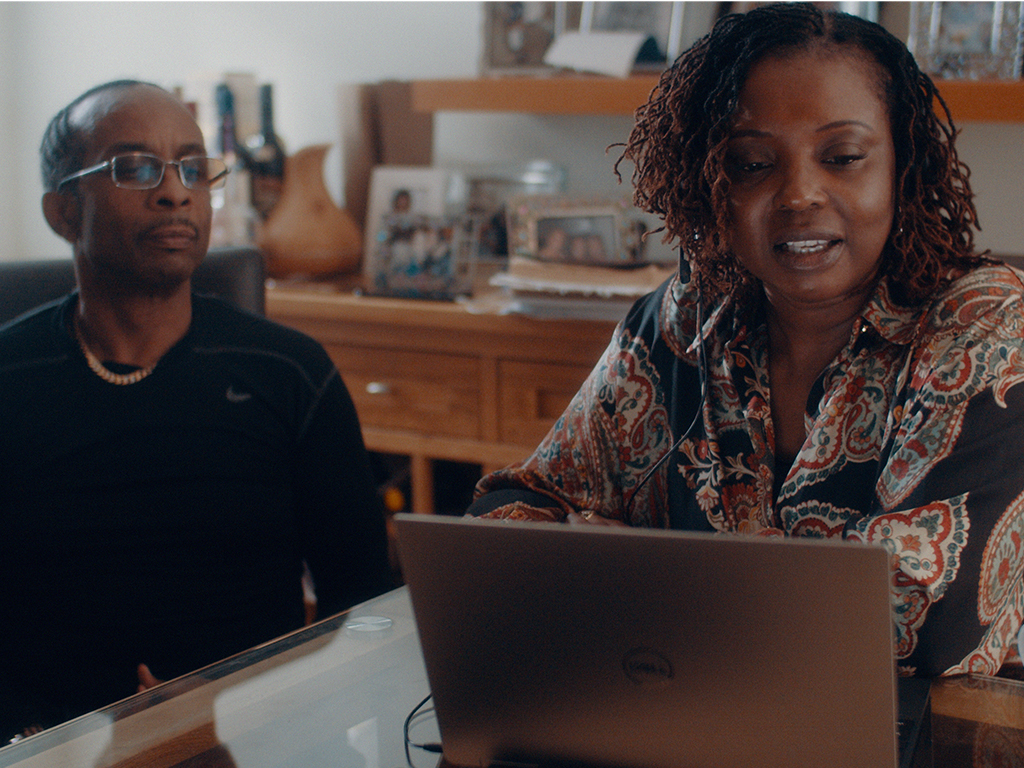With MND, speech and communication can be affected in various ways.
Weakness in the tongue, lips, vocal cords and chest can make speech faint, slurred or unclear. Gesture and facial expressions can also change. This makes conversations more difficult as your symptoms progress, but there are techniques and communication aids to help.
Select from the following options or search for content by need with our:
Care information finder
“It’s very hard to anticipate the progression of the disease before the effects are actually happening to you.”
Who can help with speech and communication problems?
Many communication aids are expensive and your needs can change with MND. Before buying equipment, ask your GP to be referred to a speech and language therapist for an assessment. This will help work out your current and likely needs in the future.
A speech and language therapist (SLT) can help by advising on techniques to use your voice effectively and communication aids to suit you.
We may be able to provide assistance where the local speech and language therapy team is unable to provide suitable communication aids. Please see our page on equipment loan for MND for more information.
Further information
See information sheet 7C - Speech and communication support
Our booklet Telling people about MND has tips on use of advocates if you have problems with communication.
Our pocket sized booklet What you should expect from your care can support discussions with health and social care professionals, including speech and language therapists. This may help lead to better outcomes for treatment and care with MND and contains the main points from the NICE guideline on motor neurone disease. NICE guidelines are produced by the National Institute of Health and Care Excellence, providing recommendations to help professionals support specific conditions, such as MND.
What communication aids can I use?
Communication aids range from simple tools like word or image boards to high-tech electronic aids. These can all support you if you experience problems with speech and communication.
There is no ‘best’ type of communication aid, as individual preferences, abilities and needs vary. Not all communication aids suit everyone and some can be expensive – see Who can help? above for guidance.
We provide guidance on support and communication aids in our information sheet: 7C – Speech and communication support.
Our booklet Telling people about MND has tips on use of advocates if you have problems with communication.
What is voice and message banking
You can plan ahead for support with speech and communication problems. Powered communication aids often come with a synthesised voice, but you can use your own recorded voice on these devices.
This can be done in two ways, through message banking or voice banking. Simple overviews are given here and you can also see our animated video What is voice and message banking? at the bottom of this page.
Message banking
This is where you record words, phrases or longer passages that you use a lot or as special messages. When replayed, these will sound exactly as you recorded them and cannot change.
These messages can help maintain a sense of identity, in your own voice as you would speak. They can also communicate emotions in a way that may not be possible with a synthesised voice. You can even include recordings of sounds and reactions, such as laughter.
Voice banking
This technique enables you to record multiple sample words and phrases that create a synthesised version of your voice. You can then use this version of your voice to create new phrases and sentences. This process works best before any major changes to your speech.
If speech has become difficult, family members or friends can bank their voices for you, if you wish. This can help you use a familiar accent.
Our MND Connect helpline can provide guidance on the voice banking process.
We provide more information on the voice banking process in our information sheet: 7D – Voice banking and message banking
Communication Access Symbol
The Communication Access Symbol can help you find organisations, services and venues, where members of staff have been trained to support people with communication difficulties. Look out for the symbol as more places adopt it.
For more information, see: www.communication-access.co.uk
This symbol is included on our Speech card, which you can order from MND Connect.
Page last updated: 18 February 2025
Next full review: February 2027
